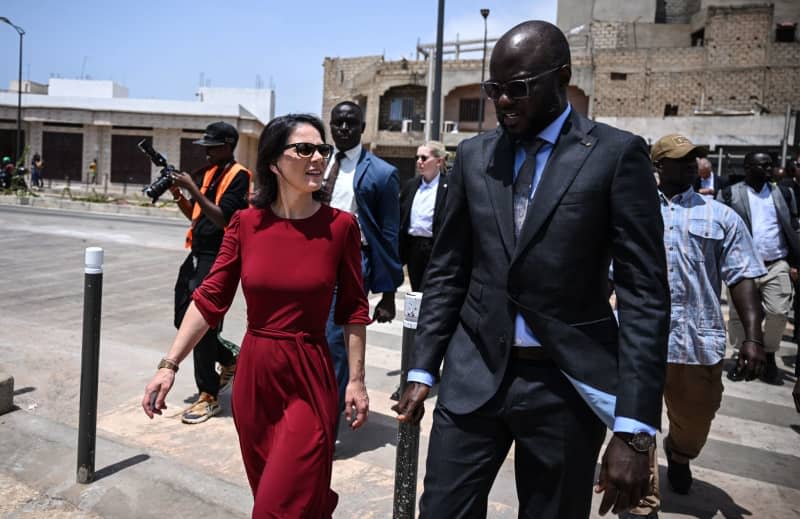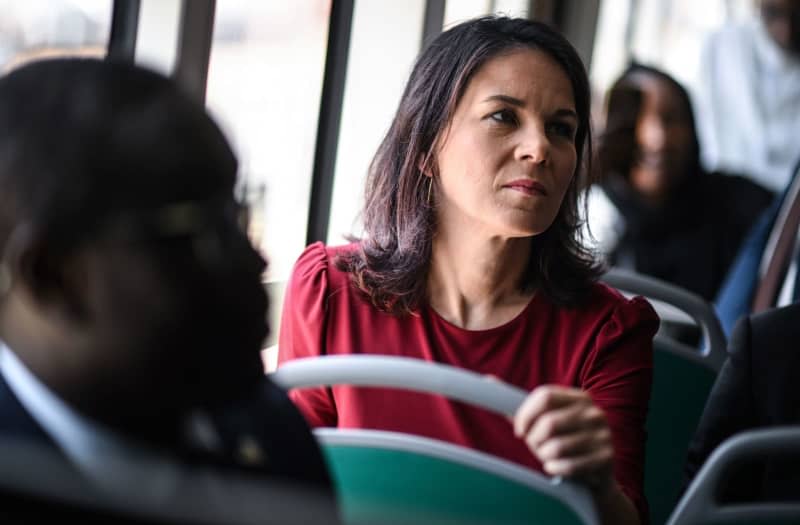German Foreign Minister Annalena Baerbock arrived in Senegal on Monday in an effort to step up cooperation with West African democracies in order to keep the instability currently observed in the Sahel countries under control.
“Security here in the region, the future prospects of this region, are also closely linked to our own security and our own development,” Baerbock said in Dakar.
“The region’s problems and challenges, terror, migration, organized crime and poverty also affect us directly in Europe,” said the minister, who also plans to visit Côte d’Ivoire, another of the few remaining democracies in West Africa.
Senegal and Ivory Coast are considered two of the most important partners for Europe, at a time when more and more Sahel nations are turning to Russia.
Baerbock’s trip comes amid a wave of instability in the Sahel region, which some observers have called the Coup Belt, following military uprisings in Mali, Chad, Guinea, Sudan, Burkina Faso, Niger and Gabon since 2020.
Although many of the new military governments distanced themselves from relations with the European Union, withdrew from the Economic Community of West African States (ECOWAS) and obtained the support of Russian forces, Senegal and Côte d’Ivoire maintained their relations with the West .
After talks with his Senegalese counterpart Yassine Fall on Monday, Baerbock said he had no illusions about the unstable situation in the Sahel.
The coup plotters in Mali, Niger and Burkina Faso have set their countries back economically, politically and also in their relations with Germany, she said.
“We cannot simply continue as if nothing had happened”, stressed the minister.
At the same time, it also became clear that the Sahel is part of Germany’s and Europe’s immediate neighborhood, Baerbock said. “This is why we are not dismantling all our tents, but acting pragmatically within the remaining wiggle room,” she said.
“With all the crises currently keeping us on edge, we know that Europe’s opportunities and challenges are inextricably linked to those of Africa.”
Baerbock’s two day visit
While Germany’s top diplomat travels through West Africa, German Development Minister Svenja Schulze organizes a meeting of the Sahel Alliance in Berlin, which coordinates international development cooperation for Mauritania, Mali, Burkina Faso, Niger and Chad.
After the World Bank, France and the EU, Germany is the largest donor.
During his visit to Senegal, Baerbock also held talks with the newly elected President Bassirou Diomaye Faye, considered a key figure in maintaining stability in the region.
Senegal has not experienced violent conflict since its independence from France in 1960.
“Senegalese have managed to initiate political change within the democratic system for all to see,” Baerbock said. “Wherever we as democracies, wherever we as Europe do not invest, others invest and create dependencies that, in case of doubt, are used against us and our security interests.” It was no coincidence, she said, that China and Russia, in particular, were making very large investments on the African continent.
Baerbock tours of Dakar’s bus network
Previously, Baerbock began his two-day trip to West Africa with a tour of an electric express bus project in Dakar.
Dakar’s Bus Rapid Transit (BRT) system came into operation in May, with financing from the European Investment Bank and the World Bank. Together with the TER suburban train, the transport network aims to facilitate mobility and reduce environmental damage.
The population of the Dakar metropolitan area has increased tenfold since 1970, with around 4 million people officially living in the region. Although the city is located on a peninsula by the sea, it suffers from some of the worst air quality on the African continent.
Germany is committed to “proposals that benefit people on both sides today and face future challenges together,” Baerbock said, arguing that the project would promote Senegal’s green transition and improve quality of life for residents.
She said Africa’s first electric express bus system is a tangible example of beneficial cooperation, highlighting the European Union’s Global Gateway initiative – which aims to invest up to €300 billion ($326 billion) in developing countries by 2027 – for praise.
Senegal, which started oil production a month ago and intends to start exporting natural gas by the end of the year, is simultaneously making increased efforts towards sustainable energy supply.
According to the International Energy Agency, the country has met wind and solar energy targets set for 2025, which now provide a fifth of its electricity. The share of electricity from renewable energy is expected to reach 40% by 2030.
To help Senegal achieve its goals, €2.5 billion in public and private funds will be mobilized under the Partnership for a Just Energy Transition with Germany, France and the EU.




































